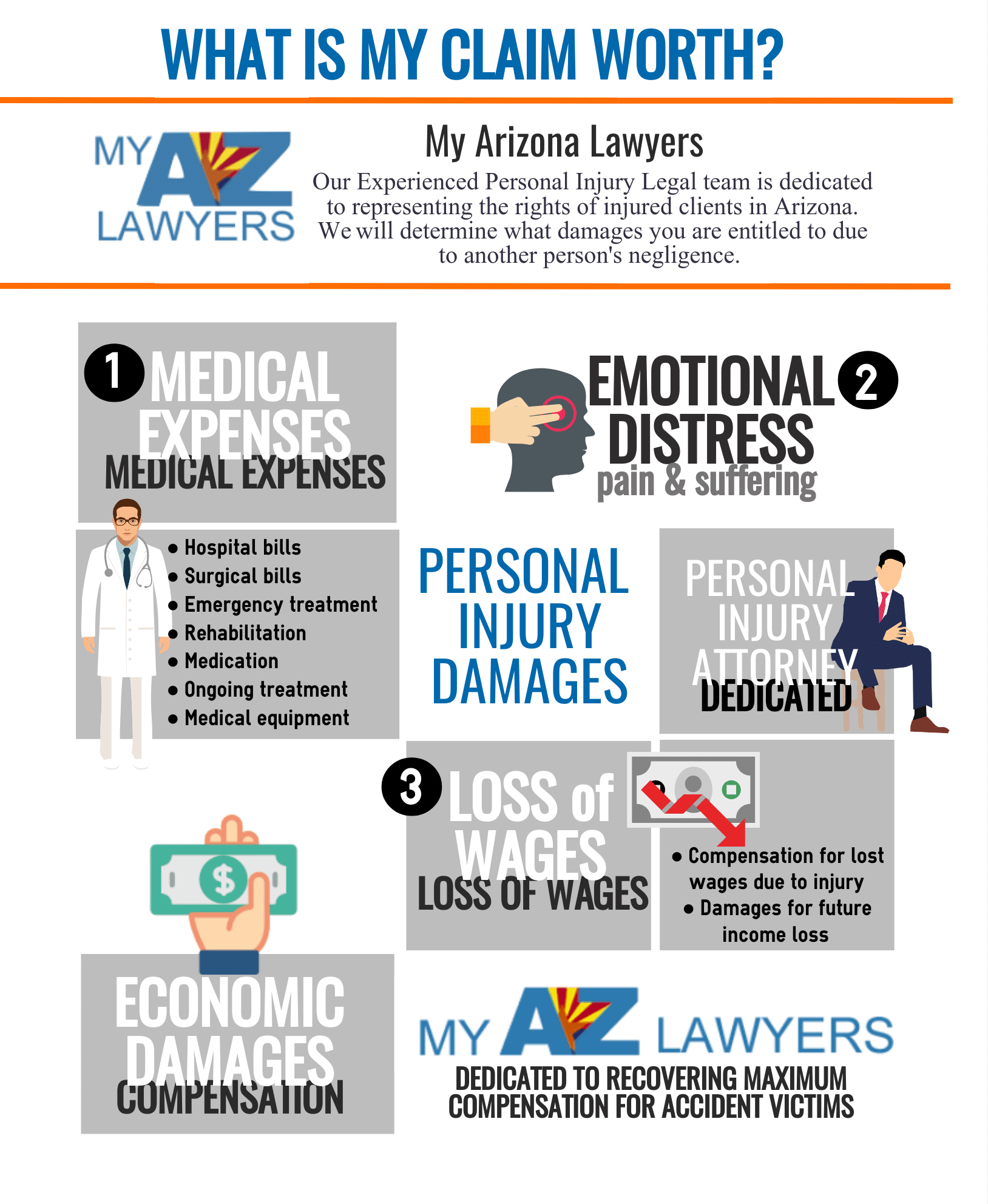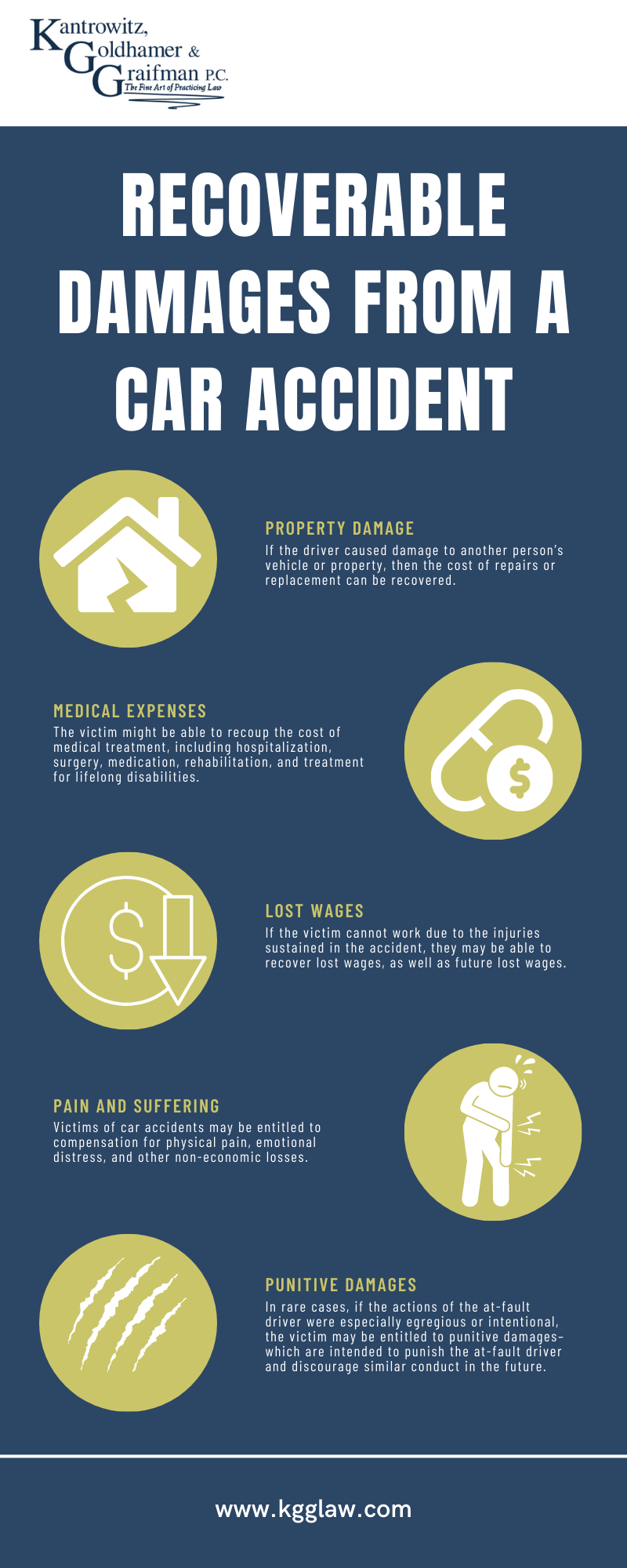Lost Wages Damages in Personal Injury Cases: A Comprehensive Guide

Source: myazlawyers.com
This article delves into the crucial aspect of calculating lost wages damages in personal injury claims. Understanding the different types of lost income, how to prove lost wages damages, and factors that influence these calculations is essential for those affected by a personal injury. This information, combined with legal guidance, empowers you to navigate these complex situations effectively.
Types of Lost Income and Lost Wages Damages

Source: kgglaw.com
Lost wages damages often encompass more than just lost salary. It's important to understand the various components that may be eligible compensation.
Lost Wages Damages: Basic Definition

Source: moorelaw.com
Lost wages damages, the most common type, are straightforward in concept. They represent the monetary value of lost earnings during recovery. Accurately calculating lost wages damages demands precise tracking of daily pay rates and the number of days lost from work.
Loss of Other Benefits: Beyond the Paycheck
Lost wages damages go beyond basic salary; they must also account for benefits and advantages related to the injured party's employment. This might include:
- Unused sick days: The financial worth of unused accrued sick days lost.
- Vacation time: The lost value of accrued vacation days that cannot be used.
- Personal days off: Determining if lost wages damages pertain to personally earned, or vacation-accrued lost days off.
- Bonuses and Promotions: The possibility of lost bonus income, or stalled career progression potentially resulting in significant future lost wages damages.
- Company cars or perks: Loss of employer-provided perks directly linked to the individual's job responsibilities that need careful analysis within the lost wages damages calculation.
Lost Earning Capacity: A More Complex Aspect of Lost Wages Damages
Lost earning capacity is more challenging to evaluate. It assesses the difference between what an injured person could have earned and what they are likely to earn now. This involves analyzing factors such as permanent impairments resulting in lower earning potential and future earning ability. It requires documentation about an individual's skills and experience, past earning capacity (paying special attention to any promotions, pay raises or pay structure differences for each year the individual was employed or their prior employment details to help in assessing loss of future wages), the specific lost work-life context, projected future income, economic forecasts for the industry, inflation rates, and possible changes in skills and professional roles that have been influenced by injury or reduced physical ability. Expert witnesses are often required for these cases; an economist or vocational expert will determine how a disabling injury alters a person’s prospects. The evaluation process often involves gathering vast evidence regarding how the physical or other condition of the person may affect their capacity or productivity level when calculating lost wages damages. It requires precise projection models which can affect lost wages damages substantially and therefore, is significantly impacted by external economic or social conditions. These calculations often become particularly crucial for young individuals with little to no work history to assess potential peak earning power reduced.
Proving Lost Income: Documentation & Lost Wages Damages
Demonstrating lost income is critical for recovering lost wages damages. The type of evidence needed differs between employees and self-employed individuals.
Employees and Lost Wages Damages Evidence

Source: davidbryantlaw.com
Evidence to demonstrate lost income and related lost wages damages must comprehensively cover your circumstances in terms of:
- Medical documentation: A doctor's note justifying missed time, specifying the exact dates needed off of work to recover and/or maintain lost wages damages documentation.
- Employer letter: Formal correspondence directly from the employer detailing the lost time off and work missed (which will sometimes need explicit statement that lost productivity or tasks/work is correlated to lost wages).
- Lost income documentation (pay stubs, tax returns, benefit statements): Complete and documented pay stubs or salaries are mandatory as the basic framework for income details when demonstrating the basis for lost wages. Similarly, it will also need income evidence from prior to and following the accident date, since such dates will require thorough data across many years or pay periods in relation to calculating lost wages damages.
- Lost work projects: Specific detail of how missing work projects resulted in tangible financial losses, which may factor into overall lost income and calculation of lost wages damages.
- Bonus or Promotion history: Showing lost opportunities in terms of salary raises and promotional expectations also proves an aspect of lost wages damages.
- Employee benefits documents (vacation/sick/personal days): Demonstrating any company benefits lost (time off or health benefits).
Self-Employed Individuals and Lost Wages Damages Documentation
Demonstrating income for lost wages damages requires records tailored for independent or self-employed statuses, such as the following.
- Tax returns: Previous tax returns may prove essential to ascertain or to establish past earnings levels required for establishing a lost wages damages framework.
- Business records: The type and range of business operations undertaken, together with financial accounts required for evidence regarding earnings. This includes details on revenue sources and business expenses.
- Client statements: Validating evidence is possible through client testimonials proving losses to work due to physical incapacitation due to the injuries experienced and the resulting effect on work.
Factors Impacting Lost Wage Calculations and Lost Wages Damages
Several factors can complicate lost income calculations and lost wages damages determination.
Defendant's Tactics & Lost Wages Damages Claims

Source: cloudinary.com
Defendants might often try to diminish the value of lost income claims to undermine lost wages damages calculations, including the frequency of pay raises, which require solid documented evidence as lost wages damages may be minimized without such substantiating documentation or pay raise frequency records.
Disputes on Earnings: Crucial Evidence For Demonstrating Lost Wages Damages
There may be discrepancies in the income claimed; to support a claim for lost wages damages, strong evidence is essential for clarity and verification purposes. Documentation from the employment company, like payroll documents or salary letters, may assist in proving such disputes to facilitate the successful demonstration of lost wages damages for your case.
Expert Witnesses and Their Role In Lost Wages Damages Cases
Often, expert witnesses, especially economists or vocational experts, become essential in more intricate cases where there's uncertainty on earnings trajectory and job loss related to injuries incurred. Their experience and expertise can clarify the extent and potential impact of injuries to evaluate career pathways, projecting possible future lost earnings based on specific, and sometimes unusual, economic circumstances like job transitions that might become difficult given the conditions following the injury sustained. Such specialists may review past work, current potential income capacity, any potential skill transitions to factor into any calculations of projected income based on injuries. Such specific case analyses are crucial for precise lost wages damage determination in calculating a suitable resolution and settlement in cases with extensive medical and economic considerations.
Key Action Items: Practical Steps to Calculating Lost Wages Damages
Initiating procedures for lost wages damages recovery requires a strategic and thorough process.
- Medical documentation: Accurate records of diagnosis and recovery estimations are mandatory.
- Employer letter: Written documentation from employers is crucial regarding lost working time, impact on compensation (with or without compensation during injury and recuperation), productivity loss details in terms of impacted projects and roles, plus detail of promotions or raises foregone due to incapacity and inability to carry out certain work activities.
- Post-accident journal: Keep a diary detailing all day-to-day changes experienced since the accident, the lost working hours, activities hampered (personal and professional). This record will help demonstrate your capacity for everyday tasks before, and more importantly, during recuperation time.
Legal Guidance & Expertise: Importance of a Personal Injury Lawyer and Lost Wages Damages
Handling personal injury claims involving calculating lost income is extremely complex, demanding thorough documentation. Having a qualified personal injury lawyer with a good grasp of these intricacies can guide you toward ensuring your claims are correctly reflected in lost wages damage calculations and estimations, minimizing complications during negotiations, proving validity for your claims in legal proceedings and negotiations.
In Conclusion:
Calculating lost wages damages is intricate in personal injury cases. Careful documentation, including pay stubs, tax returns, medical records, and employer correspondence, is crucial to establish and present clear support in justifying the monetary equivalent for lost income and time missed as part of the lost wages damages framework. Seeking expert legal counsel is vital when navigating the process. This helps your case achieve its highest value while providing a suitable means of redress and recovery during the process.
